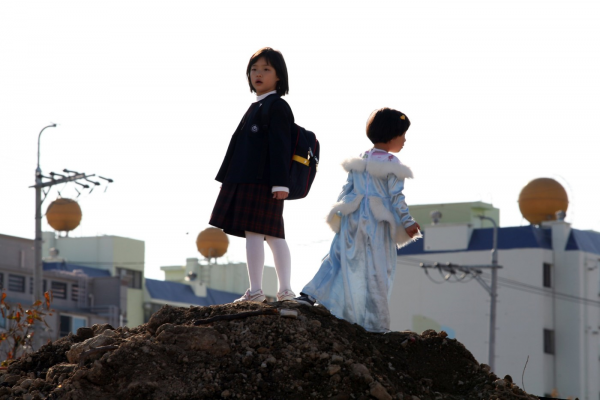
The Institute for Korean Studies presents:
Ji-yoon An
Universität Tübingen
"Whose Accent? Situating Korean Diasporic Cinema"
Flyer: Forthcoming
Abstract: Two “Korean” films from 2009 were striking in their use of children as protagonists: So Yong Kim’s Treeless Mountain and Ounie Lecomte’s A Brand New Life. The significance of these two works lies in their similar narratives of children’s abandonment and journeying, but also in the comparable backgrounds of the filmmakers as Westerners with Korean origins. Both filmmakers left Korea as children. Both films were created as a memento of their Korean roots and childhoods in Korea. My interest in these two films is twofold. First, a textual reading reveals child perspectives as playing crucial roles in concealing the gravity of the issues of abandonment and adoption in the narratives. Second, I examine the “accented context” of the films and their filmmakers, borrowing from Hamid Naficy’s theory of “accented cinema” (2001). The geographic and thematic return to Korea and the Korean family by these Western Korean filmmakers brings forth questions beyond the narratives, of what constitutes a Korean film and a Korean experience. Ultimately, these two films are seen as examples of a growing Korean diasporic cinema.
Bio: Ji-yoon An is a Visiting Assistant Professor in Korean Studies at the University of Tübingen, Germany. An received her Ph.D. in East Asian Studies from the University of Cambridge, UK. Coming from a background in Music and Film Studies, An is a scholar of visual culture, with interests in cultural trends and flows in contemporary Korea. An has published in a variety of journals and edited volumes and is currently organising the 9th Korean Screen Culture Conference, to be hosted at Tübingen in June 2021. Her doctorate thesis, tentatively titled Family Pictures: Representations of the Family in Contemporary Korean Society, is forthcoming as a book.
Free and Open to the Public
If you require an accommodation, such as live captioning, to participate in this event, please contact Stephanie Metzger at metzger.235@osu.edu or 614-247-4725. Requests made at least one week in advance of the event will generally allow us to provide seamless access, but the university will make every effort to meet requests made after this date.
This event is supported by a U.S. Department of Education Title VI grant to The Ohio State University East Asian Studies Center.
